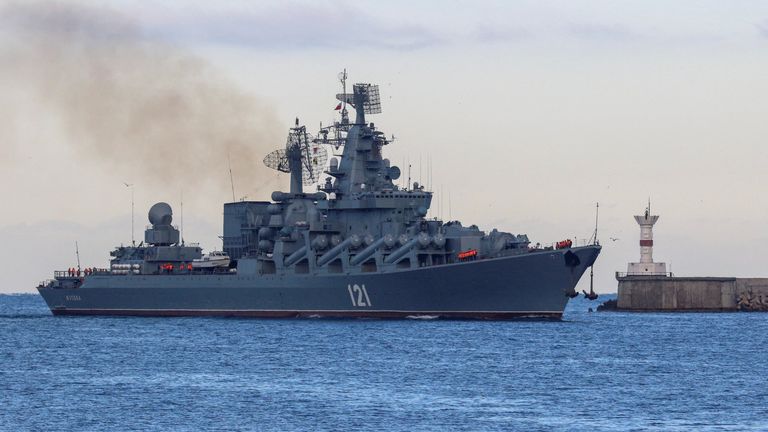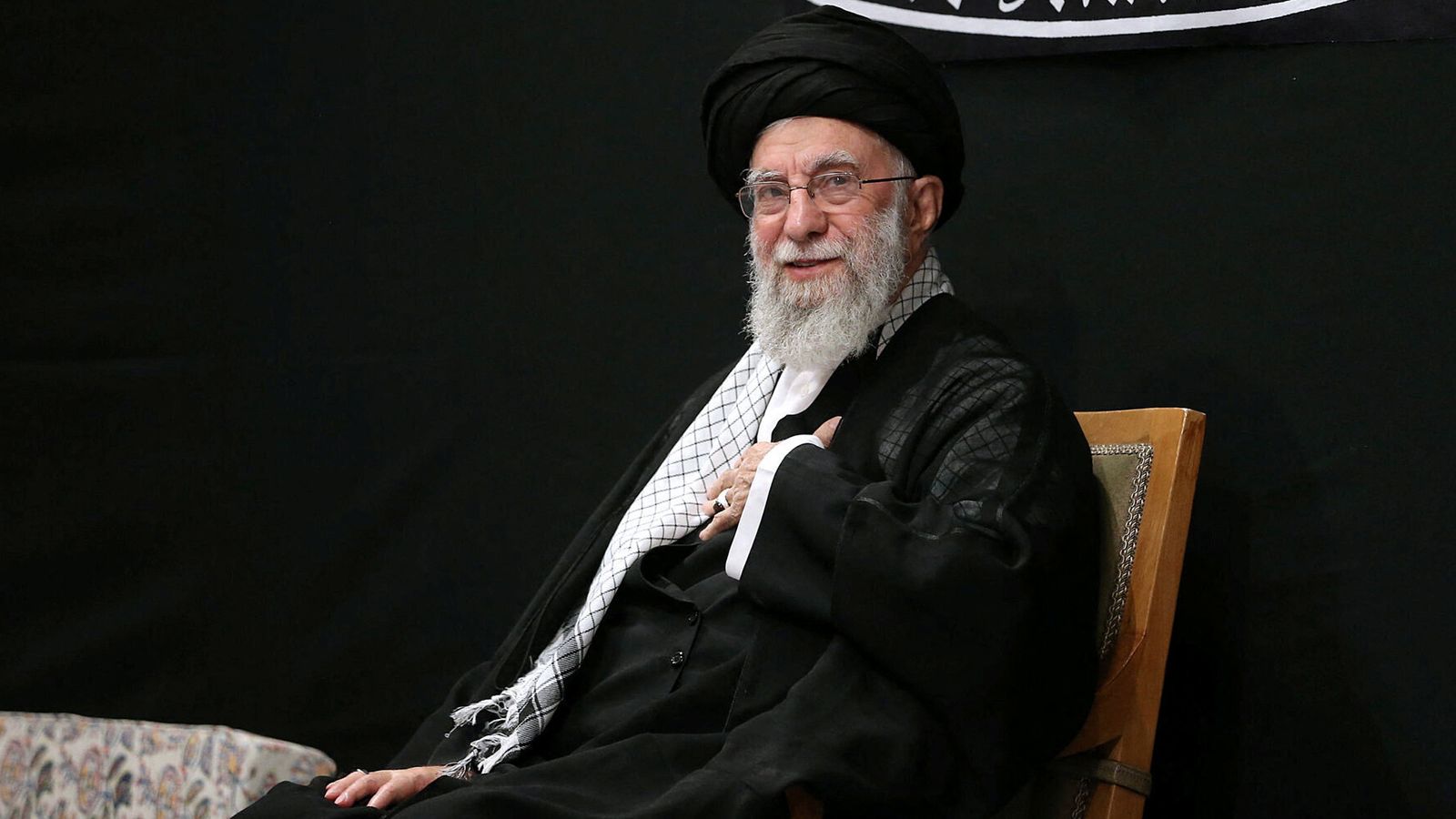The sinking of the Moskva missile cruiser means that the crucial city of Odesa is now a bit safer, and any Russian attack on the port would be harder.
The loss of the Russian ship has dominated news stories about the war in the last day or so, and has raised questions about what it means for the wider conflict.
Ukraine war latest – Russia ‘digging up graves in Mariupol’
What does it mean for operations on the ground?
The possible demonstration of Ukrainian forces’ ability to reach ships out at sea means the Russians will have more trouble than they may have expected in launching a maritime attack on Odesa.
They weren’t going to do that anyway until their ground forces got a bit closer, and of course the ground forces are further away from the city than they were a couple of weeks ago.
Without the ground forces moving in on Odesa an amphibious assault would have been very hazardous indeed.
If I was in Odesa this morning I would think “well OK we have shown them what we can do”.
That said, this is only one phase, one episode, in what is going to be a fairly long war.
What likely happened?
The Moskva was sailing up and down in a fairly predictable patrol pattern – everybody knew where it was heading.
The Russians look as if they didn’t rate Ukrainian surface abilities so they got a bit close. They were maybe 40 or 50 kilometres off the coast.
It appears that the Ukrainians – if they did what they say they did – flew a Bayraktar drone on one side of the ship to distract the Moskva’s radar as a decoy and then hit it with two missiles on the other side.
Even if the Russian explanation is correct – that the damage was caused when fire set off ammunition stores – it’s still massive incompetence.
Read more: Why the sinking of Russia’s warship is an embarrassment for Putin
Fire at sea is the worst possible thing that can happen to a ship, and for a fire on board to affect the ammunition handling at a time when the ship is not in a battle suggests massive, huge incompetence.
We also don’t know for certain what has happened to the crew – only 100 of them are definitely accounted for at the moment.
What does it mean for the Black Sea fleet?
While the loss of the Moskva doesn’t rob the Russian Navy of much capability, it is certainly a large blow to its prestige.
The cruiser had been acting as the control centre for the 30 or so vessels the Russians have got in the Black Sea.
Losing the Moskva flagship is a massive PR blow for the Kremlin – the Russians haven’t lost their flagship since the Russo-Japanese war of 1904.
Where does the fleet go from here?
Originally they looked as if they wanted to conduct an amphibious offensive against Odesa when their army got there but their army got caught at Mykolaiv.
It looks as if a lot of the ships have gone back and forth to Sevastopol.
It’s not clear what they can really achieve – they can resupply for the offensive in Mariupol and they’re landing a lot of stores at Berdyansk.
But what’s going on in the Black Sea is really a waiting game because Odesa is not now under threat in the way that it was a couple of weeks ago.












